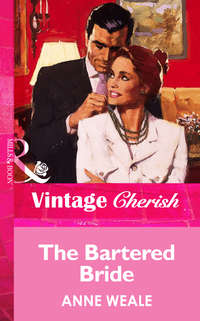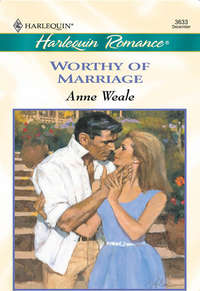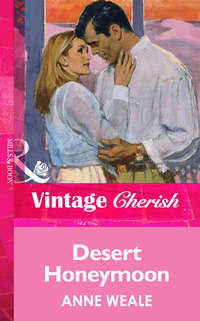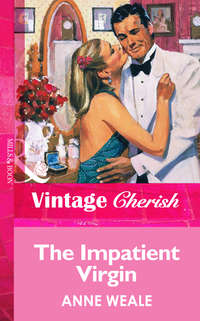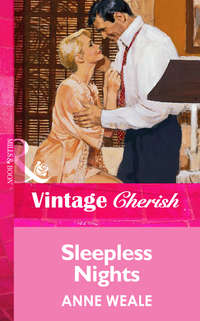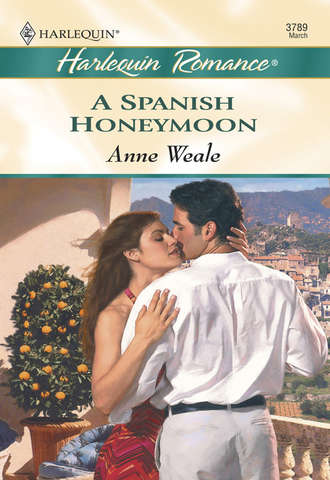
Полная версия
A Spanish Honeymoon
Q: What was the most memorable event you have reported?
A: I’ve covered a succession of memorable events: Tiananmen Square in 1989; Baghdad and the Gulf War 1991; famine in Somalia 1993; the Soweto riots 1996. Every year produces a major disaster. I wish the media would focus more on mankind’s achievements. I think being swamped with bad news depresses people.
Q: What are your worst and best qualities?
A: Worst: I’m impatient, especially with petty bureaucracy. Best: Probably tolerance.
Q: If you could travel backwards in time, what era would you visit?
A: I’d like to have been the expedition reporter on Christopher Columbus’s ship Santa Maria when, trying to reach the East by sailing westwards, he discovered the New World.
Q: What excites you and what depresses you?
A: I’m excited by the World Wide Web: I believe it has the potential to make life better for everyone. I’m depressed by self-satisfied, self-serving politicians.
As she re-read his answers to the questions, Liz was forced to admit that, had she known nothing about his personal life, the interview would have impressed her.
His childhood sounded far more exciting than hers. She had always longed to travel, but a possessive mother, shortage of money and falling in love with Duncan had conspired to prevent her from being anything but an armchair traveller. Now her wanderlust had diminished. From what she read, mass tourism and the popularity of back-packing had combined to make exotic destinations far less exotic than they had been when she was eighteen. The time to take off and see the world had been then, not now. As her grandmother had often said to her, ‘Opportunity only knocks once’.
Liz shut down her computer and went back to bed. After she had switched out the light, for a while it was Granny she thought about. Granny had tried to dissuade her from marrying so young. ‘You’re not properly grown-up,’ she had said. ‘You’ve had no experience of life…or other men. There are more fish in the sea than Duncan.’
Knowing that her grandmother’s marriage had not been happy, Liz had dismissed her advice.
But her last thought, before she slept, was not about Granny. In her mind’s eye she saw the strong features of the man whose faced was filed on her computer.
Cam’s e-mailed instruction, before his next visit, to have Alicia make up the bed in the room above the garage puzzled Liz until, on her own next visit to La Higuera, she went upstairs for the first time. It then became clear that the bedroom where she had seen him kissing Fiona was a comfortable guest room and the room over the garage was his room.
The first thing that caught her eye was a portrait on the wall between the two windows, obviously placed there so that the light wouldn’t fade it. It was an oil painting of a man in the regimental dress uniform of a bygone age. He had an early Victorian hairstyle, but otherwise it might have been Cam in fancy dress. There was a small engraved brass plaque on the bottom of the ornate gilt frame. She had to go close to read the small writing—Captain Nugent Fielding, 1st Bombay Light Infantry. Clearly the captain was Cam’s ancestor.
There were family photographs around the room and many other personal possessions. She found it interesting that he slept here when he was alone, but used a guest room when he had a girlfriend in residence. What would a psychologist make of that? she wondered. That he didn’t want his private space invaded by any woman? That he saw women purely as sex objects and therefore, like kitchen equipment and garden tools, they belonged in certain areas, but not in here?
It was twelve-forty-five and she was about to wash the fruit she was having for lunch when the telephone rang.
‘Hello?’
‘It’s Cam. I just got in. What are you doing for the next couple of hours?’
‘Nothing in particular, but—’
‘Then we’ll go out to lunch. There’s a lot to discuss. I’ll pick you up in ten minutes, OK?’
Taking her consent for granted, he rang off.
Liz flew upstairs to her room, whipped off her house clothes and scrambled into grey gabardine trousers and a grey and white striped silk shirt. Slotting a belt through the loops on the waistband, she stepped into suede loafers, then put on her favourite gold knot earrings, hurriedly slapped on some make-up and re-brushed her hair before pulling it through a black scrunchy.
It was only when she was ready, with a couple of minutes to spare, that she asked herself, What am I doing, making an effort to look good for a man I don’t even like?
There wasn’t time to consider the answer to that question because, remembering that once summer was past the interior of Spanish restaurants could sometimes be chilly if they didn’t have an open fire, she had to whizz back upstairs and grab her red shawl.
She was running downstairs when she heard a knock on the door. She had thought he would pip his car’s horn to alert her to his arrival, but when she stepped into the street he was waiting to open the door for her. Quickly, Liz locked up and slid into the passenger seat. No doubt it was part of a womaniser’s armoury to have impeccable manners, she thought as he bent to pull the safety belt out of its slot and handed her the buckle.
‘Thank you.’ She tried to recall a previous occasion when a man had performed that small extra courtesy but could not remember it ever happening before.
‘So what’s new in Valdecarrasca?’ he asked, as he got in beside her and pulled the other belt across his own broad chest.
‘Nothing…as far as I know. How did your trip go?’
‘I’ve been dashing around the world, covering outbreaks of mayhem, for too long,’ he said, checking his rearview and wing mirrors before pulling away from the kerb. ‘It no longer gives me a buzz, which means it’s time to call it a day and find something more rewarding to do.’
‘What have you in mind?’
‘It would be fun to do a Gerald Seymour.’
‘The name rings a bell but I can’t place him.’
‘He used to be a war reporter. Now he writes excellent thrillers.’
‘Oh, yes…I remember now. My husband used to like his books.’ Not that Duncan had been a bookworm, but when they were going on holiday he would buy a thriller at the airport and often would still be reading it on the flight home.
‘Unfortunately I don’t think I have Seymour’s imaginative powers,’ said Cam, ‘and, although there are exceptions, not many non-fiction writers make a comfortable living. By the way, the house is in the best shape it’s been in since it was new. Your relationship with Alicia is obviously going well.’
‘My Spanish is improving too,’ said Liz. ‘It’s hard to get her to speak really slowly, but we’re managing. I’ve started buying the Saturday edition of El Mundo. It has very good health and history supplements. It takes me all week to read them, but it’s good for my Spanish vocabulary.’
‘There are some Spanish novels on the shelves in the sitting room. If you want to borrow them, or any of the books, feel free,’ Cam told her.
‘That’s very kind of you. If I do, I’ll take good care of them.’
‘If I had any doubts about that, I wouldn’t have suggested it.’ He took his eyes off the road for a moment to smile at her. ‘I don’t give many people the freedom of my library.’
The flattering implication that they were two of a kind, at least as far as books were concerned, was a small breach in her defences that she couldn’t afford to let him repeat.
‘If there are any wonderful restaurants around here, I haven’t discovered them,’ he went on. ‘But Vista del Coll has a good view and the food is passable. Do you know it?’
‘I’ve passed it. I haven’t eaten there.’
‘The clientele is an odd mix of elderly expats and Spanish workmen. At weekends and on fiestas it’s packed with Spanish families. Young couples are reducing the number of children they have, but the different generations of the family still go out in a bunch in a way you don’t often see in the UK,’ he said. ‘I like that.’
Liz made no comment. That she had no children, and probably never would have, was a sadness she had learned to live with. But sometimes, seeing other women with theirs, she felt an ache inside her.
It was only a short drive to the restaurant where, although it was early for lunch by Spanish standards, there were already several cars parked.
‘Would you prefer to eat inside or outside?’ Cam asked, as they mounted the steps to the terrace.
‘It’s such a lovely day, it seems a pity not to make the most of it.’ Liz had left her shawl on the back seat of the car.
‘That’s my feeling too. How about there?’ He indicated a table for four where they would both be able to sit facing the mountains.
Cam was drawing out a chair for her when the proprietor bustled out to greet them. Evidently he remembered Cam from previous visits and the two men—one short and rotund, the other tall and lean—had a conversation in rapid Spanish.
Then the other man gave a smiling bow to Liz and presented her with one of the two menus he was carrying.
‘What about a drink while we’re choosing what to eat?’ Cam said. ‘A glass of vino blanco, perhaps?’
‘I’d rather have a glass of sparkling water.’ She wanted to keep a clear head.
Cam’s left eyebrow rose a fraction, but he didn’t try to persuade her to change her mind.
The menu, she discovered, was set out in several languages. She read the Spanish page, keeping her finger in the English page in case there were dishes she could not translate.
With her bottle of spring water came a glass of white wine for Cam, a basket of crusty bread and a dish of alioli to spread on the bread.
‘When I was in my teens, alioli was always made on the premises,’ he told her. ‘But then an increase in salmonella caused several bad cases of food-poisoning and restaurant hygiene regulations became a lot stricter. Now it’s not homemade any more and doesn’t have the same flavour.’
Liz sipped the refrigerated water and looked at the view. There was no denying that it was nicer being here, sitting in the sun with an interesting companion, than having lunch by herself at home.
‘Were your father and grandfather journalists?’ she asked, remembering what he had told her before, and what she had read about him online.
The question seemed to amuse him. ‘Definitely not, and they didn’t approve of my choice of career. They wanted me to follow them into the foreign service but fate decreed otherwise. Do you believe in fate?’
‘I don’t know. Do you?’
‘No, actually I believe in chance. The chance that led me to break the family tradition happened in Addis Ababa…if you know where that is?’
‘Of course…it’s the capital of Ethiopia in north east Africa.’
‘Your geography is above average. You’d be surprised by how many people I meet who have only the haziest idea where places are outside their own country. It happened during a vacation while I was at college. I was in Ethiopia when a munitions dump blew up, killing a TV reporter and leaving the cameraman and sound recordist without a front man. I persuaded them to let me stand in for the guy who was dead. I had beginner’s luck. The reports we did were good enough to get me a place on the payroll as soon as I got my degree. How did you get your start?’
‘As an office dogsbody. Then I worked up to being PA to the magazine’s crafts editor. Needlework was my hobby. They were always short of good projects and they took some of my ideas. After a bit I was promoted to assistant crafts editor. I might, eventually, have succeeded her. But after…There came a point when I suddenly realised I hated the twice-daily commute and the whole big city thing. I’d had enough of northern winters and unreliable summers.’
‘That’s the way I feel. I’d like to spend nine or ten months of the year here, and the rest of the time networking in London, New York and wherever else I needed to keep up my contacts. That said—’ He broke off as the proprietor came back, expecting to take their order.
When Cam explained they hadn’t decided yet, he gave an accommodating shrug and turned away to greet some new arrivals.
‘We had better make up our minds. What do you fancy?’ said Cam.
‘I’d like to start with a salad and then have the roast lamb, please.’
‘You’ll have some wine with the meal, won’t you?’ Liz nodded. ‘I like wine…but I can’t knock it back like some of the expats I’ve met.’
‘Oh, the drinks party crowd.’ His tone was dismissive. ‘You find them wherever there’s a large foreign community. People who live abroad fall into two groups. One lot thrives in a different culture. The other never feels really comfortable. Have you met Valdecarrasca’s first foreign residents, the Drydens?’
‘I’ve heard them mentioned. I haven’t met them. He’s an American, isn’t he?’
‘Todd is one of those cosmopolitan Americans who has spent more time outside the US than in it. He used to be something important in the oil business and then, in his forties, he had a heart attack and nearly didn’t make it. They decided to downsize their lives and came to Spain, where Leonora discovered she had a genius for doing up derelict fincas and transforming them into desirable residences for well-heeled rain exiles.’
‘They live in that house near the church with cascades of blue morning glory and purple bougainvillaea hanging over the wall, I believe?’
‘That’s right. Leonora bought it years ago, when they were living on the coast near where Todd’s yacht was berthed. She bought up a lot of properties. Prices were much lower then. The hinterland was unfashionable. I expect you’ll be asked to the Drydens’ Christmas party. It’s when they give newcomers the once-over. Those who pass muster are invited again. Those who don’t, aren’t. Leonora doesn’t suffer fools and bores gladly.’
‘She sounds rather daunting,’ said Liz.
‘She’s a doer,’ said Cam. ‘She has no patience with people who aren’t. She’ll be impressed by your courage in coming here on your own.’
‘It wasn’t courage. It was desperation,’ she said lightly. ‘I was in a rut and I had to get out of it.’
Cam signalled to the proprietor, who came back and took his order. When he asked, ‘…y para beber?’ Cam turned to her.
‘Would you like red or white wine? Or they have a good rosado, if you prefer it?’
‘I’m easy,’ she said, without thinking, and then wished she hadn’t. Not that he was likely to read the alternative meaning into her answer. Or was he?
The order completed, Cam picked up her remark about being in a rut. ‘I feel much the same. I don’t know if there’s any scientific basis for the idea that our bodies go through seven-year cycles of change, but I think it’s a good idea to review one’s life every ten years or so. I don’t want to spend my forties the same way I spent my thirties and twenties. It’s been a lot of fun, but now it’s time for something new.’
The wine arrived. Here, Liz noticed, the usual restaurant ritual of pouring a little into the host’s glass and waiting for his approval was ignored. It was taken for granted the wine would be drinkable. This would have disappointed Duncan and her father-in-law, who had both enjoyed the pretence of being connoisseurs. It didn’t seem to bother Cam.
When both their glasses had been filled, he thanked the young waiter and said to her, ‘Here’s to us…an escapee from the rat-race and a would-be escapee.’
Liz responded with a polite smile, not entirely comfortable with a link that seemed tenuous, to say the least.
She was even less comfortable when, after they had both tasted the wine, he proposed a second toast. ‘And to your new venture as a website designer…with me as your first client.’
She put her glass on the table. ‘I think we need to discuss that before we drink to it. That’s why we’re here…to talk business,’ she reminded him.
‘Certainly, but business goes better when it’s combined with pleasure, don’t you think? For me, it’s much more enjoyable having lunch with an attractive, elegant woman than with a teenage or twenty-something techie who knows all the IT answers but not much else.’
Liz decided it was time to put her cards firmly on the table. ‘As long as it’s clearly established that business is where it begins and ends. You have the reputation of being a—’ she searched for the politest term for it ‘—an habitual ladies’ man and, in the last four years, I’ve found that a lot of men think a widow is a sitting target. I just want to make it clear that I’m not.’
As soon as she had made this statement, she felt she had gone too far and the lunch, far from being enjoyable, would be ruined by deep umbrage on his side and acute embarrassment on hers.
‘I’m sorry if that sounded rude. It wasn’t intended to. I only want to avoid any…misunderstanding. It’s not that I have an inflated idea of my attractiveness. I don’t. Compared with Fiona Lincoln…’ She felt she had said enough and left it at that.
While she was speaking, Cam had leaned back in his chair, watching her with an expression she could not interpret. Now the flicker of a smile appeared at the corners of his mouth.
‘It must be very annoying to have passes made that you haven’t encouraged,’ he said mildly. ‘You’ll be relieved to hear that I never do that. I only make passes at women who indicate, beyond doubt, that they would welcome a closer relationship—and not always then,’ he added dryly. ‘So now you can relax, señora. If I tell you I like your clothes, it will be a straightforward comment like saying that I like the shapes of those mountains—’ with a gesture at the craggy crests to the south of the valley.
At this point, to her relief, their first course arrived. Liz’s salad was more imaginative than the standard Spanish restaurant salad that often consisted of lettuce, tomato, onion and a few olives. Here, the chef had added hard-boiled egg, grated carrot, sweetcorn and pickled red cabbage, the last perhaps a concession to the taste of German patrons.
Cam had chosen canelones and they came in a small round glazed clay dish, hot from the oven or, more likely, the microonda.
A combination bottle containing oil in one section and wine vinegar in the other was on his side of the table, its surface covered by a white paper cloth anchored to the undercloth by plastic clips. Cam passed the bottle to her, and the pepper and salt.
‘Thank you.’ Liz loved olive oil, especially the green-gold first pressing that was not always provided in restaurants, although it was in this one.
Cam said, ‘When my grandparents came to Spain it was easy to get cooks and maids. They had a wonderful cook called Victoria who didn’t only cook the specialities of this region but dishes from the other provinces. Spain is intensely provincial and they all think their ways are the best.’
He spoke as if nothing had happened to disturb the ease of their conversation. He broke off a piece of bread and dipped it into the red sauce covering the three stuffed rolls of pasta that were his starter. Putting the bread in his mouth, he chewed for a moment, then gave a satisfied nod. ‘This isn’t out of a bottle. Now…to business. You asked, in an e-mail, about the purpose of my website. I suppose what I want is a CV, but also something more than that…’ He began to elaborate.
Their discussion of his requirements went on through the rest of the meal, only occasionally interrupted by remarks on other topics.
He had also chosen lamb for his main course and, when it was served, Liz said, ‘One of the things I love about living here is going up to my roof and seeing a shepherd and his flock and his dogs passing somewhere near the village.’
‘Have you noticed how they lead their flocks, not drive them? As a boy, I knew a shepherd. He was a gentle sort of guy who hated having to take his sheep to the matadero, the slaughter-house.’
‘At least they enjoy their lives while they are alive,’ said Liz. ‘It bothers me when animals are kept in unnatural conditions. Do you eat out a lot when you’re here? I’m sure Alicia would cook for you, if you wanted it.’
‘I can cook, if I need to. Victoria taught me how to make a caldo and a tortilla. Sometimes foreign correspondents find themselves stuck in situations where they need practical skills as well as the gift of the gab.’
He topped up her glass, making Liz suddenly aware that the bottle was three-quarters empty and he hadn’t had the lion’s share. She had drunk more than she’d intended and must be careful to make this glassful last. She had never had enough to make her tight and wasn’t sure what her limit was.
‘I don’t do puddings,’ said Cam, when their plates were being removed. ‘But don’t let that put you off. The flan here is home-made, not served in a plastic pot.’
‘I don’t do puddings either. Too many calories. Why don’t you eat them?’
‘I’m a cheese man, and generally speaking the cheeses of Spain aren’t wonderful. Cabrales, a goat’s cheese wrapped in leaves, is good, but it’s rare to find it in restaurants and you don’t see it often in supermarkets.’ His glance took in as much of her figure as he could see. ‘You don’t look as if you have a weight problem.’
‘I don’t, but I think I might if I didn’t watch it. I walk on the lanes through the vineyards every day, but that, and a bit of gardening, is not a great deal of exercise. Most of the time, I’m sitting.’
‘Talking of the garden, let’s go back and have our coffee there. I have some ideas for improving it that I’d like your opinion on.’ He signalled for the bill.
In the light of his assurance that he never made passes without encouragement, and assuming he was a man of his word, Liz had no grounds for feeling uneasy about going back to his place for coffee in the middle of the day. It would have been different at night, but then it was most unlikely they would ever have dinner together. Nevertheless she did feel slightly uneasy. Mainly, perhaps, because he was agreeable company and she didn’t trust herself to remain impervious to his charm if they were together too often.
When they reached his house, he said, ‘Sit tight while I open the garage.’
He unlocked the metal up-and-over door and swung it open. Earlier, watching him eat, she had wondered how he kept fit. Inside the garage, she saw a mountain bike and a shelf bearing several pairs of heavy walking boots.
Before he closed the outer door of the garage, Cam unlocked the door to the terrace for her. She did not offer to help with the coffee but left him to deal with it while she went down to the steps to the garden and settled herself on one of the two park benches with metal arms and wooden seats. The bench at the west end of the garden was close to two huge lavender bushes that were in flower with a score of bees working on them.
She had sometimes sat on this bench for a few minutes at the end of her gardening sessions. She wondered what changes he wanted to make, and then her thoughts drifted back to the garden of the suburban semi-detached where she and Duncan had lived together for thirteen years, slightly more than a third of her lifetime.
Cam came down the steps carrying a folding table that he set up in front of the bench. Soon afterwards he reappeared with a tray. As well as the coffee things there were two liqueur glasses and a bottle on it. Liz’s doubts about his intentions reactivated.
‘I mustn’t stay long. What are your ideas for the garden?’ she asked.
Instead of answering the question, he said, ‘What’s your hurry? Why not relax for the rest of the afternoon?’ He checked the stainless steel watch that circled his muscular wrist. ‘It’s past three o’clock now.’
‘I want to type out the things we discussed about your website while they’re still clear in my head.’
‘I can save you the trouble. I’ll send you a copy of my notes. Is it OK to send them as an attachment, or do you regard e-mail attachments in the same light as unprotected sex?’
She knew then that he thought her a prude, and perhaps she was, because, coming from him, even a joking reference to sex made her uneasy.
Forcing herself to sound composed, she said, ‘I certainly wouldn’t open an attachment sent by a stranger, or with come-ons like “Free” or “Win a million dollars” in the subject line. But I’m sure your computer is effectively virus-protected.’


